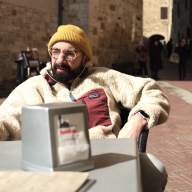
James Herbert
Bio
Participation1
I'm currently a co-director at EA Netherlands (with Marieke de Visscher). We're working to build and strengthen the EA community here.
Before this, I worked as a consultant on urban socioeconomic development projects and programmes funded by the EU. Before that, I studied liberal arts (in the UK) and then philosophy (in the Netherlands).
Hit me up if you wanna find out about the Dutch EA community! :)
Posts 22
Comments320
If you haven't already seen it, you might find the post 'Doing Prioritisation Better' an interesting read
Hey! I'm a co-director at EA Netherlands. According to various indicators, we're the fourth largest national EA community in the world, we target mid-career professionals, and I think what you're proposing is very interesting! But I'm not sure I understand - why build a new tool? Why not just build in some EA thinking into your existing service? Similar to what Charity Navigator has done.
Have you already spoken with Nina at HIP? Maybe check out the School for Moral Ambition as well.
Great work and great post! Thanks for sharing.
Re the 'Changes in our spending' appendix and the challenge of separating 'performance' marketing from 'awareness' or 'brand' marketing, we've also been thinking about this at EA Netherlands. My tentative solution is to split CAC into an ‘activation CAC’ (only direct conversion costs) and a ‘blended CAC’ (total spend including brand/awareness). Apparently this is quite standard in the commercial world.
If blended CAC holds steady or falls even as we scale up awareness activities, that’s evidence the broader work is expanding the top of the funnel and making our conversion efforts more efficient downstream. If blended CAC rises while activation CAC stays flat, it could be an early signal that our awareness spending is not translating into engagement.
So for EA Netherlands, using intro programme completions (87) as the denominator:
- Activation CAC: ~€149 (intro programme delivery + performance ads)
- Blended CAC: ~€471 (adding brand agency + staff time on awareness)
For context, Claude tells me the average B2B SaaS blended CAC is ~€500
The low EA awareness findings from Pulse prompted us to commission Dutch-specific research to test whether we face a similar situation here. In the meantime, we’ve already shifted some resources toward targeted awareness-raising - the data suggested our funnel may be constrained at the top rather than further down, so we’re testing whether reaching new audiences is higher leverage than deeper engagement with existing ones.
This is a good take. 80k are good at it, bluedot too, and GWWC have started doing good things as well.
I think national orgs like EA Netherlands are well-positioned to do more, but we're only just waking up to this and are learning how best to allocate a portion of the EUR 30-40k in unrestricted funding we get from CEA. At EAN we've started working with Amplify and a marketing agency and have had great results (3x'd our intro programme completions and increased our EAGx attendance by 35%). Would like to do more of this in the future if we can find the money/re-allocate more of our funds.

Great work! I've been eagerly anticipating your recommendations for some time